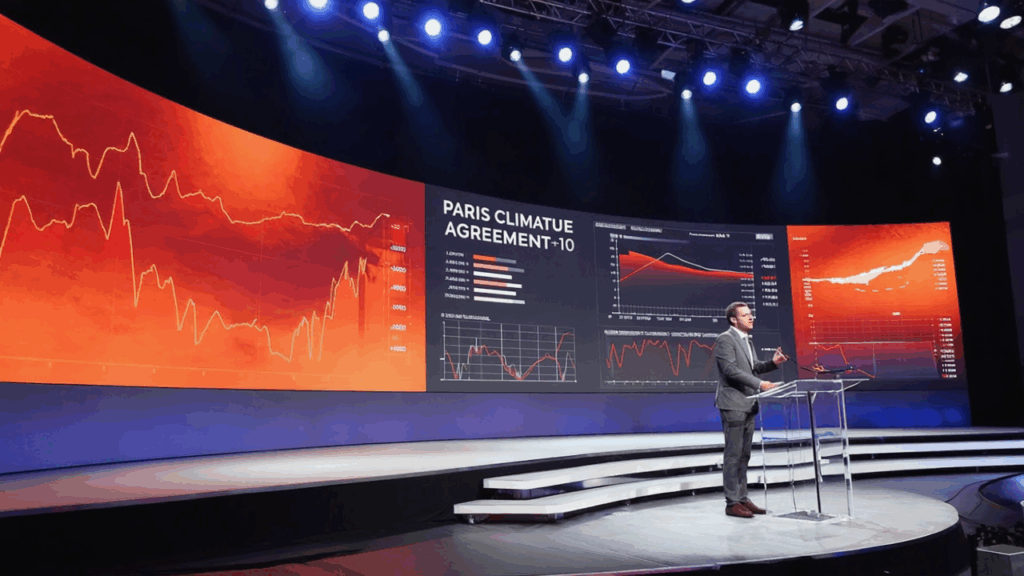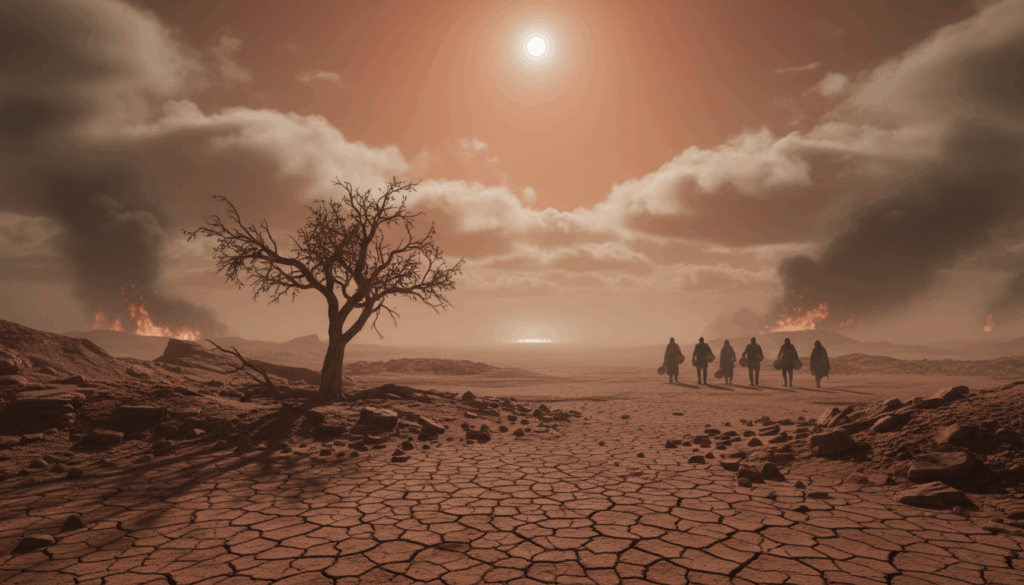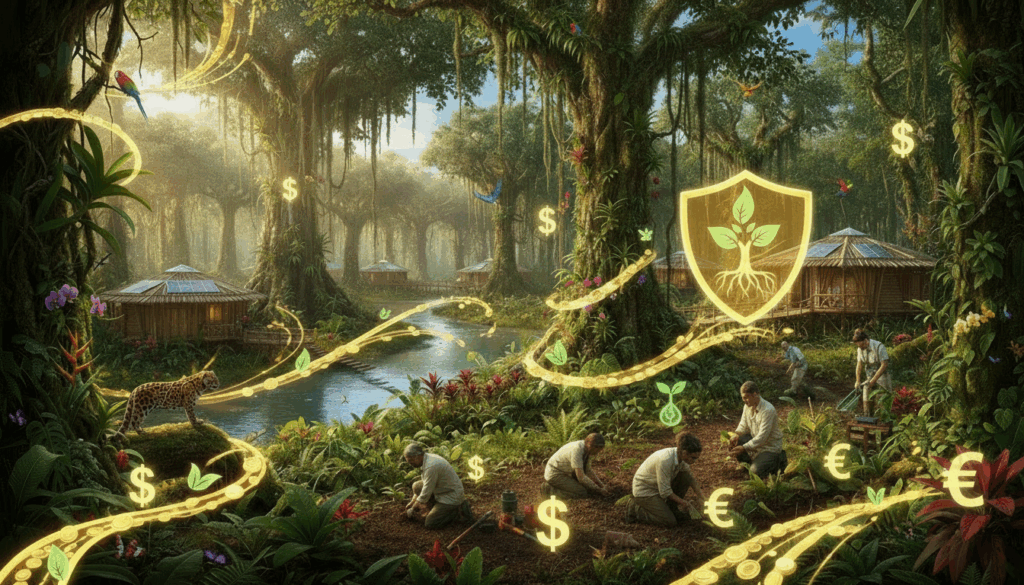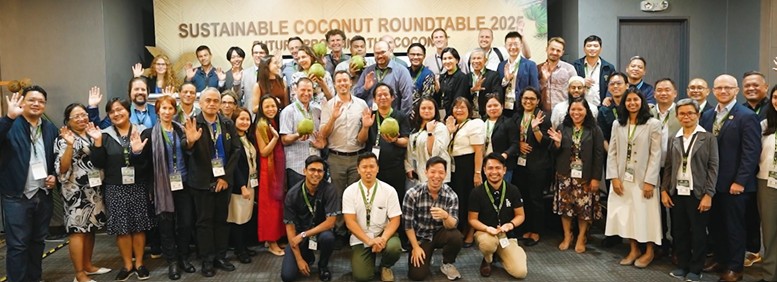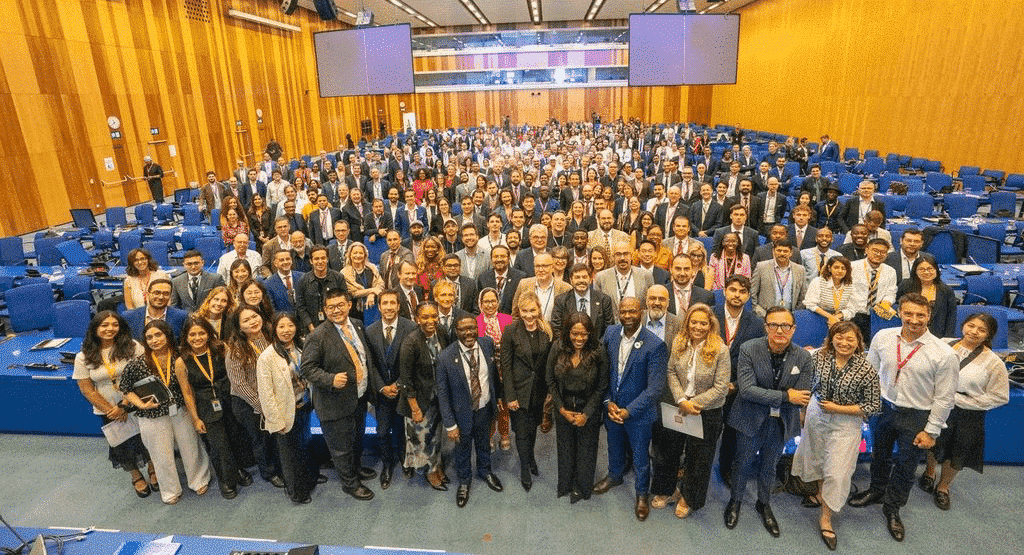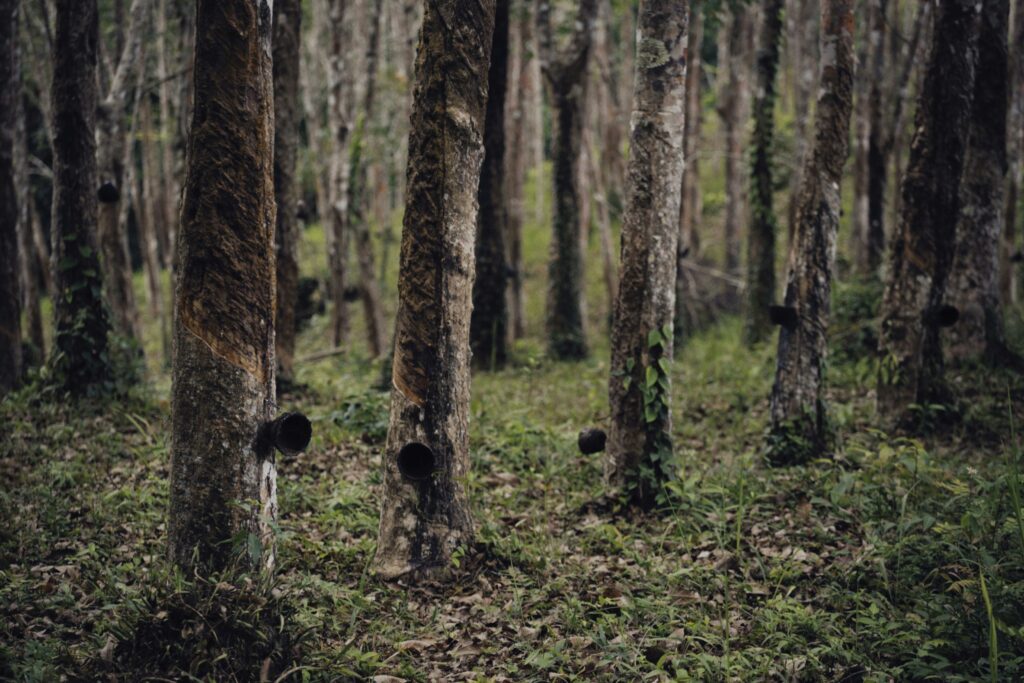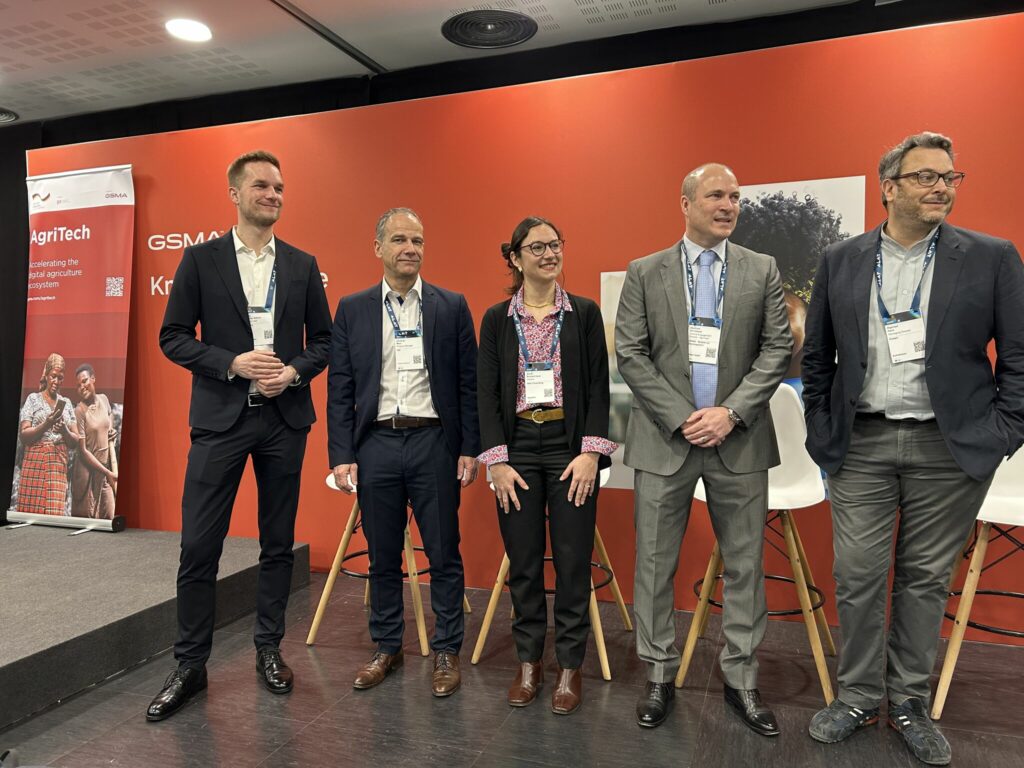Paris Agreement + 10 shows commitment gaps. Corporations need action partners for geopolitical uncertainty and climate adaptation strategies.
Tag Archives: SDGs
In light of the COP30 outcomes on carbon markets, trade, agriculture, and just transition, companies urgently need to transform their value chains themselves. Possible solutions.?
With COP 30 SSP3-7.0 scenario amid fragmented cooperation, businesses must lead climate adaptation. Ksapa supports just transition at scale.
Brazil’s $125B Tropical Forest Forever fund promises to protect rainforests. But does it prioritize profits over planet?
Learn how credible biodiversity credits drive real restoration, avoid greenwashing, and deliver lasting benefits for nature and communities.
Coconut supply chains face crisis. Discover scalable impact programs improving smallholder livelihoods while securing supply.
AI revolutionizes advanced economies while the Global South faces exclusion due to funding, research, and access gaps.
Explore how Ksapa enhances Rubber Smallholder Farmers Livelihoods through sustainable practices and capacity building in Sumatra.
Ksapa joined MWC 2025 Barcelona panel on digital inclusion, sharing insights connecting underserved rural communities at GSMA’s invitation.
Smallholders are an impact opportunity for the entire agricultural value chain on ESG issues faced by global buyers

